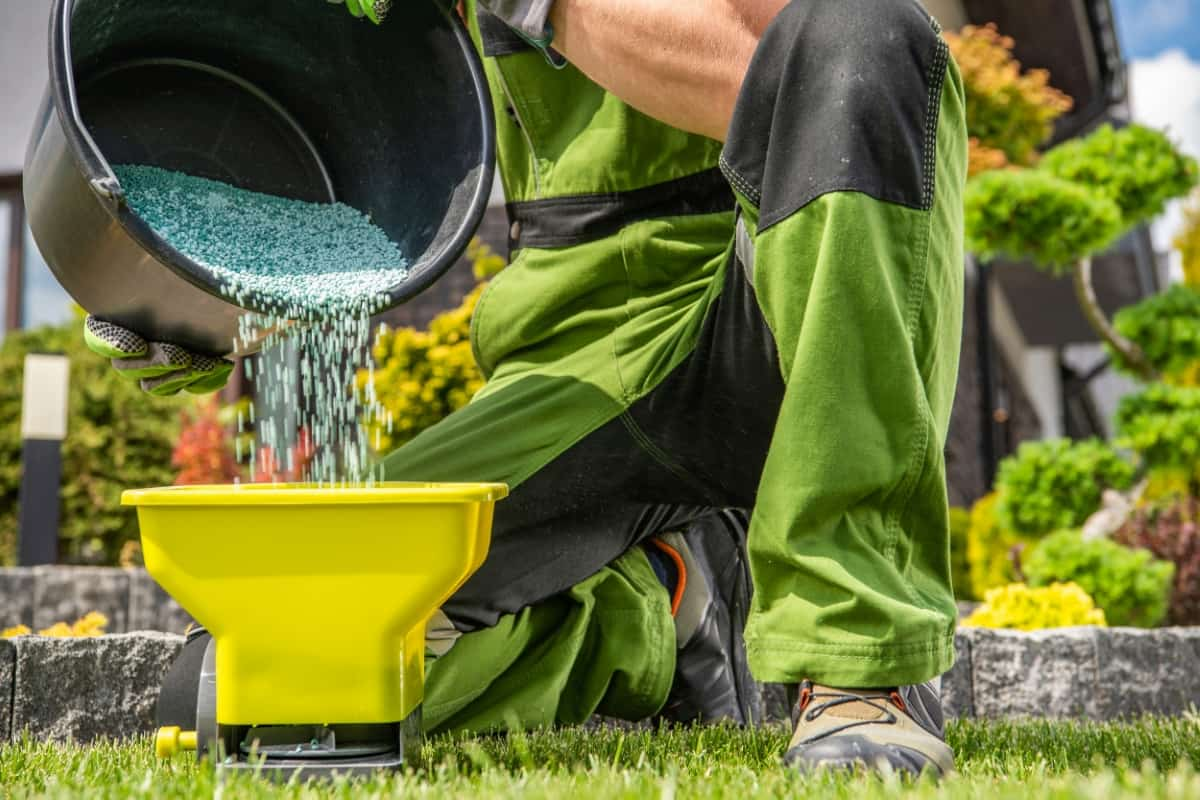The success of a corn crop greatly depends on the choice of fertilizer, which can vary in type, application, and cost. Two of the most popular fertilizers used by corn farmers are granular and liquid forms. Here we learn about the advantages and disadvantages of each, as well as compare their costs, to help corn farmers make an informed decision on which fertilizer best suits their needs.
Granular vs Liquid Fertilizer
What is Granular Fertilizer?
Granular fertilizer is a solid, dry, and usually granular or pelletized form of nutrients released into the soil over time. These nutrients are typically applied before planting or as a top dress during the growing season. Granular fertilizers can be formulated with a range of nutrients, including nitrogen, phosphorus, potassium, and various micronutrients, depending on the specific needs of the crops being grown. Granular fertilisers give maize crops a steady supply of nutrients all through the growing season because they release nutrients slowly.

Advantages of Granular Fertilizer
There are several advantages to using granular fertilizer for corn crops. First, because powdered fertilisers release nutrients slowly, plants get a steady supply of nutrients throughout the growing season. This reduces the chance of nutrients washing away and helps plants grow the best they can. Additionally, granular fertilizers are easy to store and handle, as they are typically available in bagged or bulk form. Their solid nature makes them easier to apply with conventional equipment, such as broadcast spreaders, which most farmers already have.
Disadvantages of Granular Fertilizer
Despite their benefits, there are also disadvantages to using granular fertilizers for corn crops. One major drawback is their uneven distribution in the soil, which can result in nutrient hotspots and deficiencies. This is particularly problematic in fields with uneven terrain or poor soil quality, as nutrients may not be uniformly distributed.
In case you missed it: Best Organic Tomato Fertilizers: For Better Yield and Taste

Additionally, granular fertilizers are typically more expensive than liquid fertilizers due to higher production and transportation costs. Finally, granular fertilisers’ slow-release characteristics may be both a boon and a bane since it may not provide enough nutrients during crucial growth stages, resulting in lower yields.
What is Liquid Fertilizer?
Liquid fertiliser is a nutrient-rich solution that can be sprayed or poured on soil or plant leaves. The nutrients in liquid fertilizers are typically more readily available for plant uptake than granular fertilizers, as they are already soluble. Like granular fertilizers, liquid fertilizers can be formulated with a wide range of nutrients, depending on the specific needs of the crops being grown. They can be applied through various methods, including foliar spraying, drip irrigation, or as a side-dress during the growing season.
Advantages of Liquid Fertilizer
One of the main advantages of using liquid fertilizer for corn crops is its ability to provide rapid nutrient uptake, which can be particularly beneficial during critical growth stages. This can result in improved yield and overall crop health. Another advantage is the versatility of liquid fertilisers in terms of when and how they are administered throughout the growing season. Additionally, liquid fertilizers provide a more uniform distribution of nutrients than granular fertilizers, which can help avoid nutrient hotspots and deficiencies.
In case you missed it: Homemade Fertilizer for Fruit Trees

Disadvantages of Liquid Fertilizer
There are also some disadvantages to using liquid fertilizers for corn crops. One major drawback is the potential for nutrient leaching, as the soluble nutrients in liquid fertilizers can be more susceptible to being washed away by rainfall or irrigation. This can result in wasted fertilizer and potential environmental issues, such as groundwater contamination.
Additionally, liquid fertilizers can be more challenging to store and handle compared to granular fertilizers, as they require specialized storage tanks and equipment to prevent leakage and contamination. Furthermore, liquid fertilizers can be more labor-intensive to apply, particularly when using methods such as foliar spraying or drip irrigation, which may require additional equipment and labor.
Liquid Fertilizer vs. Granular Fertilizer: Cost
When comparing the cost of liquid and granular fertilizers, it is essential to consider the price per unit of nutrients and the overall cost of application, storage, and handling. In general, granular fertilizers tend to have higher production and transportation costs, which can result in a higher price per unit of nutrients. However, the application and storage costs for granular fertilizers are usually lower, as they can be applied with conventional equipment and stored in bagged or bulk form.
On the other hand, liquid fertilizers typically have lower production and transportation costs, leading to a lower price per unit of nutrients. However, liquid fertilizers’ application, storage, and handling costs can be higher due to the need for specialized equipment and storage facilities. Additionally, liquid fertilizers may require more frequent applications, which can increase labor costs.
Choosing the Right Fertilizer for Your Corn Crop
When deciding between granular and liquid fertilizers for corn crops, it is essential to consider several factors, including the specific nutrient requirements of your crop, the existing soil conditions, your available equipment, and your overall budget. If your primary concern is providing a consistent supply of nutrients throughout the growing season with minimal risk of leaching, granular fertilizers may be the better choice.
However, if you are looking for rapid nutrient uptake during critical growth stages and a more uniform distribution of nutrients, liquid fertilizers may be more suitable. Additionally, consider the existing soil conditions in your fields. If you have uneven terrain or poor soil quality, liquid fertilizers may provide a more uniform distribution of nutrients, helping to avoid hotspots and deficiencies.
On the other hand, if your soil quality is relatively uniform, granular fertilizers may suffice. Finally, evaluate your available equipment and overall budget. This may be the more cost-effective option if you already have the necessary equipment for granular fertilizer application and storage. Conversely, this may be a more feasible choice if you can access specialized liquid fertilizer application and storage equipment.
Conclusion
Corn farmers can decide which fertilizer type will best support their crop’s health and yield potential by carefully considering factors such as nutrient requirements, soil conditions, available equipment, and budget.
- Feed Your Flock for Less: Top 10 Tips to Save on Chicken Feed
- Ultimate Guide to Ossabaw Island Hog: Breeding, Raising, Diet, and Care
- Hatching Answers: The Top 10 Reasons Your Chickens Aren’t Laying Eggs
- Eggs and Economics: Breaking Down the Cost of Raising Backyard Chickens
- Defend Your Greens: Proven Methods to Keep Iguanas Out of Your Garden
- Ultimate Guide to Cinnamon Queen Chicken: A Comprehensive Guide for Beginners
- Ultimate Guide to California Tan Chicken: Breeding, Raising, Diet, Egg-Production and Care
- Ultimate Guide to Marsh Daisy Chicken: Breeding, Raising, Diet, and Care
- 10 Types of Chicken Farming Businesses You Can Start for Profits